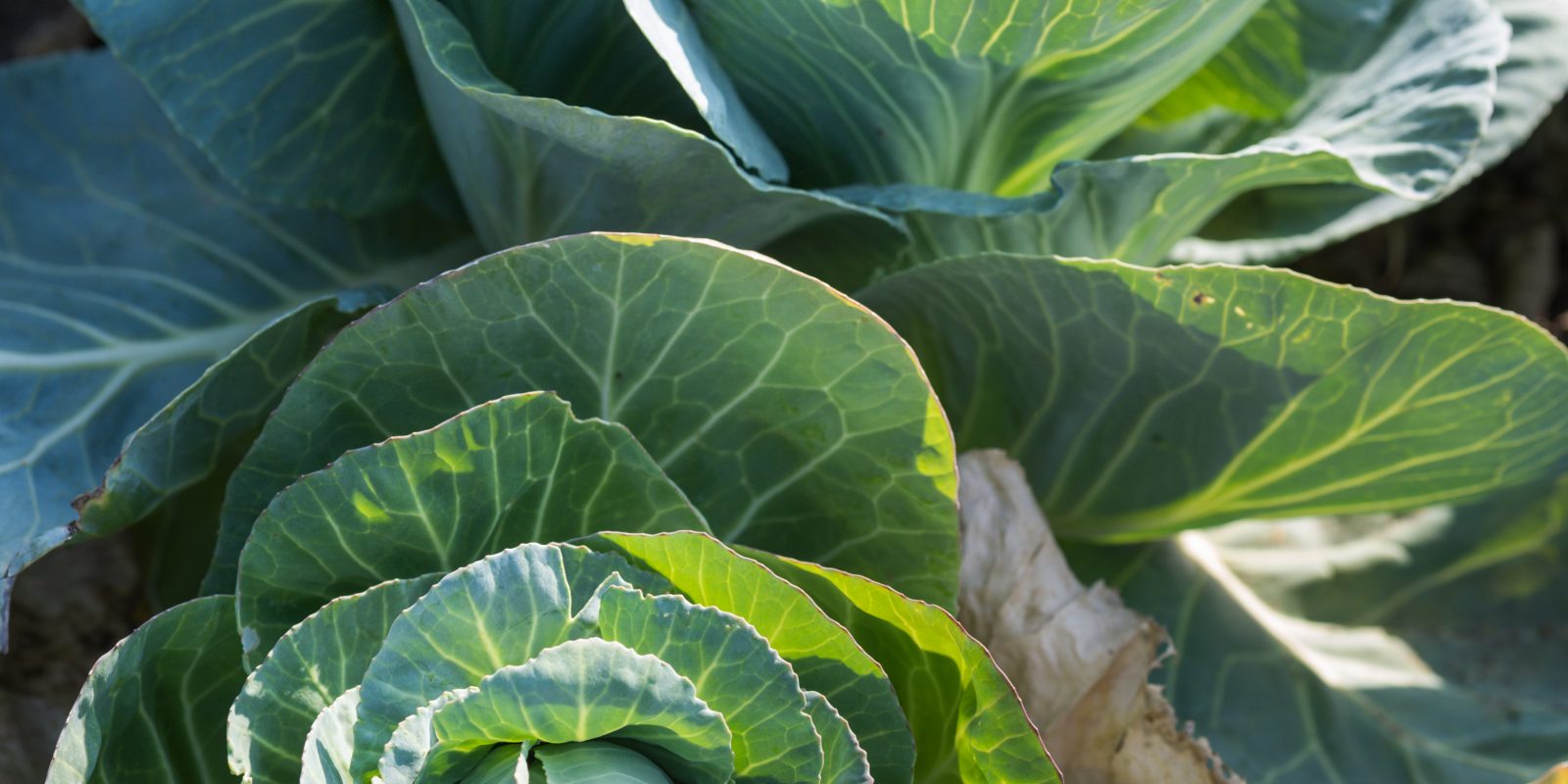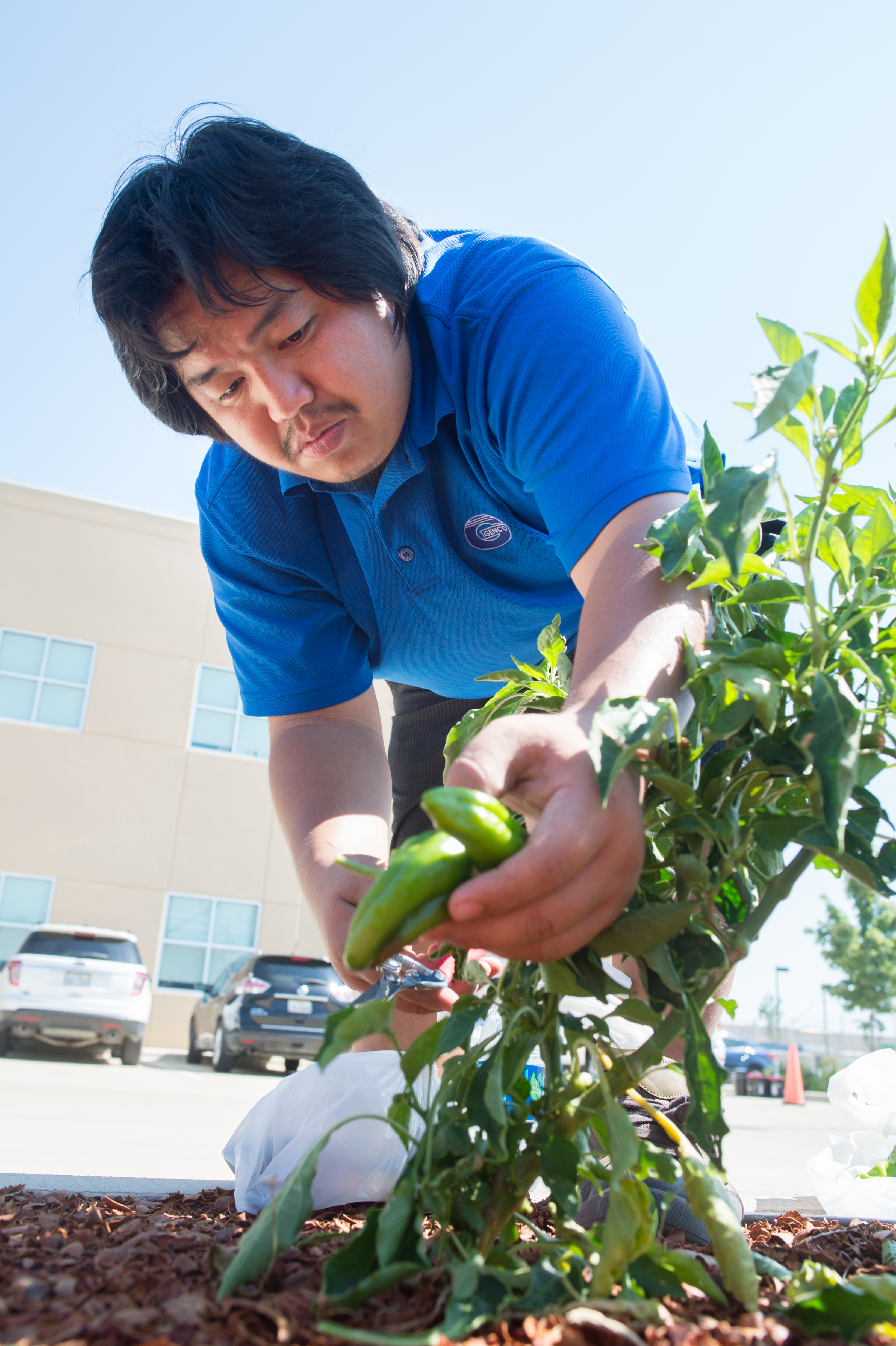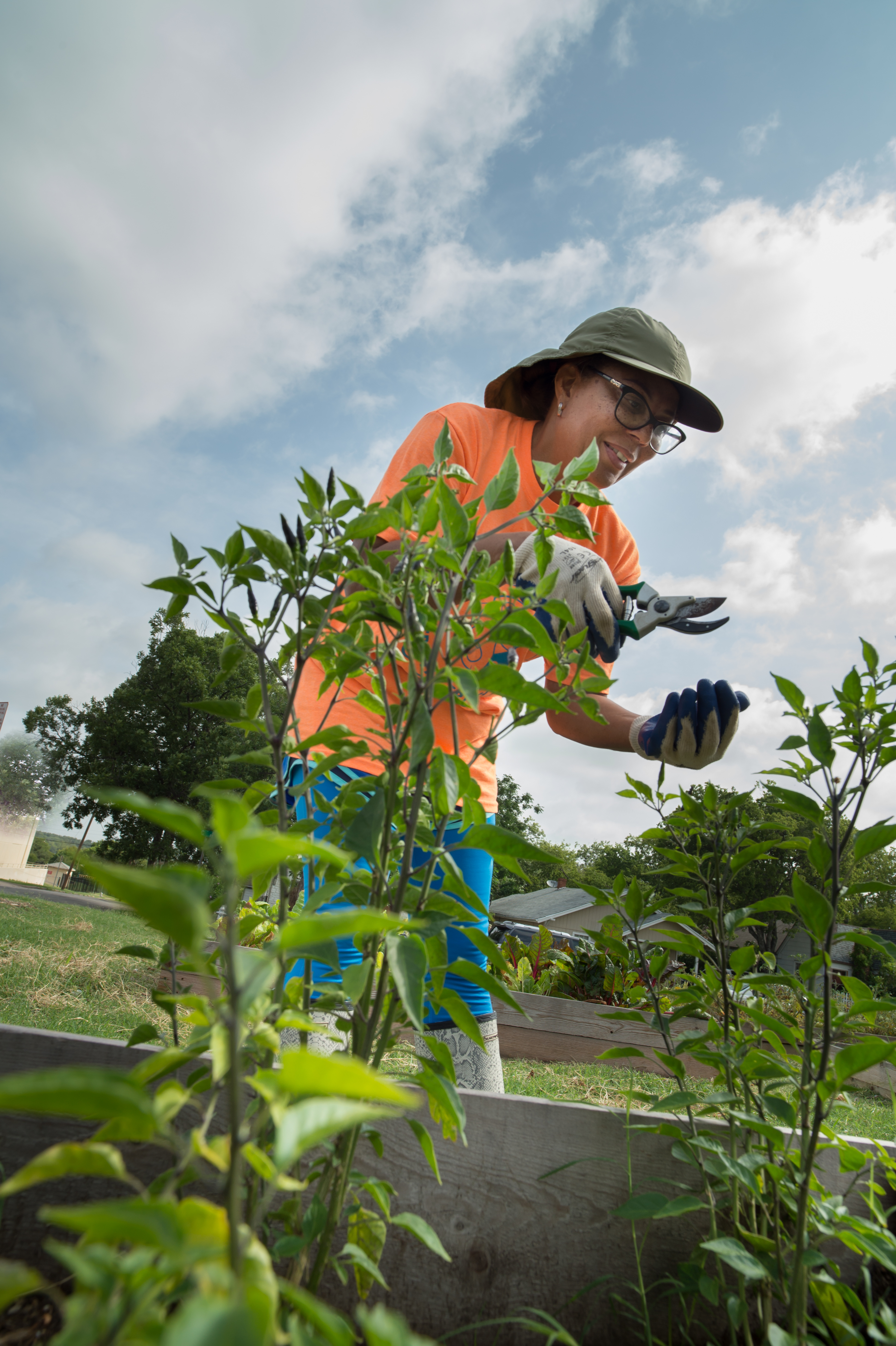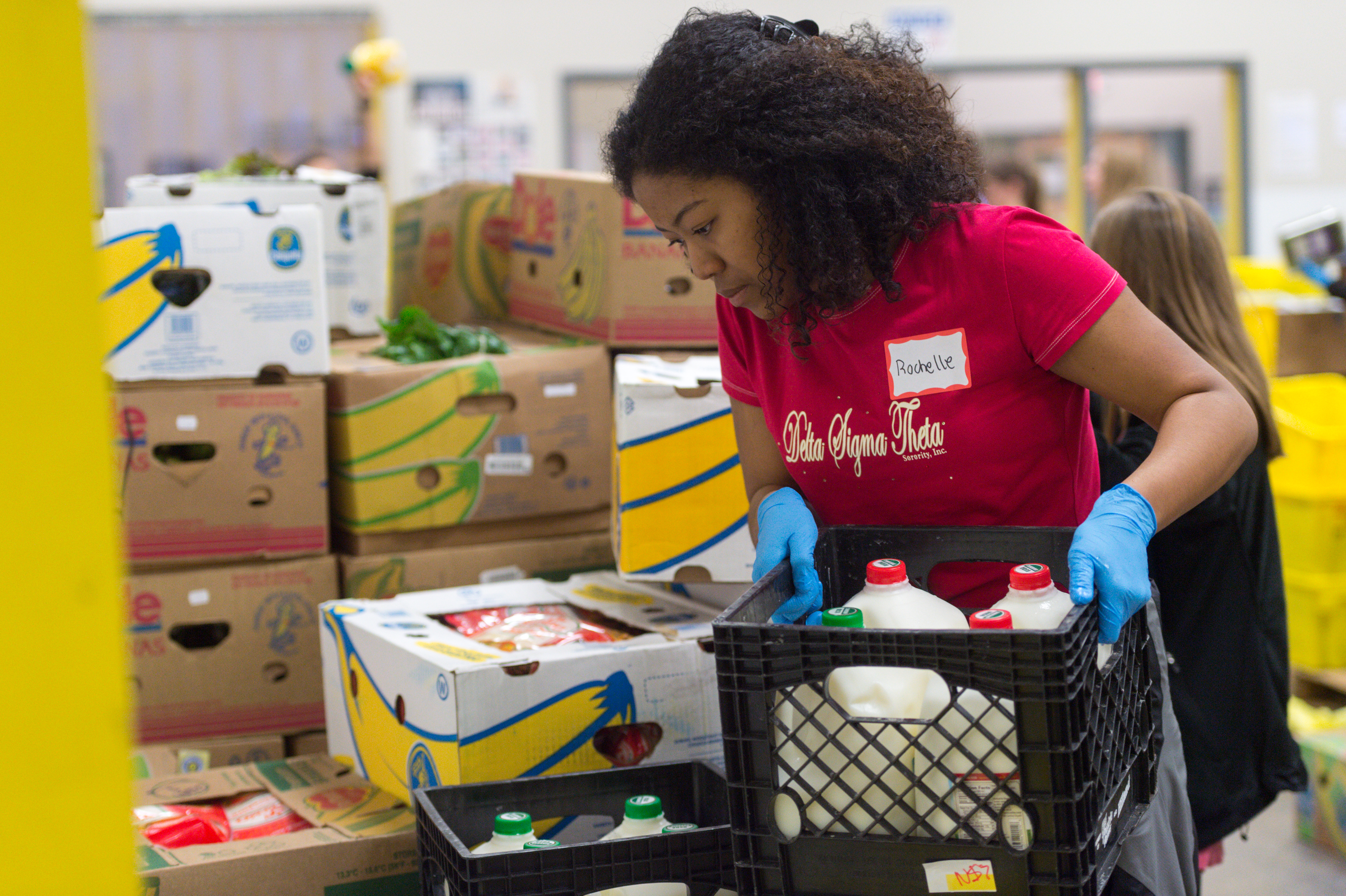
Food Justice Class Shines Light on Hunger, Nutrition
Community gardening, interviews and delivering nourishment to food deserts are all part of the curriculum.
Dave Aftandilian teaches a popular elective each spring. The 23 course slots fill up fast with students in a range of majors, and there is always a waiting list.
With a lengthy name in previous course catalogs, ANTH 30663 is now just called Food Justice. Aftandilian, associate professor of anthropology, designed the class for students to explore food needs and work on solutions to alleviate hunger on local and global scales.
Katherine “Katey” Rudd ’09 came to Texas from Connecticut in 2005. Her goal was to earn a degree in nutritional science, then work as a clinical dietitian. But her experience as the community garden program coordinator for the Tarrant Area Food Bank took her career in a different direction. “The genesis of my interest in this came from Dave’s Food Justice class,” she said. “It was very motivating for me. It changed my life.”

Volunteer Ricky Htayreh harvests peppers in the Kindred Spirits Kitchen Garden at the Tarrant County Food Bank’s Cullen Street headquarters, Fort Worth, Texas. Photo by Leo Wesson
The course introduced Rudd to the gut-wrenching reality of “food insecurity,” a term used to describe people who are hungry and often don’t know where their next meal is coming from.
Food insecurity is on the rise and affects adults and children in low-income working families, older people who find themselves without the money to get by after medical bills are paid, and middle-income workers who lose jobs or have expensive health crises.
Fort Worth-based Tarrant Area Food Bank, which services 270 community partner agencies — including dozens of food pantries — in 13 counties, has seen a steady increase in the need for food assistance in North Texas.
“It’s not necessarily always dramatic, but it trends upward over time,” said Micheline Hynes, nutrition services manager at the food bank. “One of those things that people don’t quite understand is the majority of food bank clients are working families, with one or more jobs per person, and they’re just having trouble making ends meet.”
Community gardens, mobile fresh grocers, even neighborhood vegetable carts can help alleviate hunger in urban and rural neighborhoods. But Aftandilian said it takes a village to help such projects take root and flourish.
In 2016, the food bank reported that more than 23,000 volunteers contributed 68,000 hours of their time to support the agency’s mission. Many of those volunteers were TCU students who accumulated service hours and completed internships toward their academic degrees.
But Aftandilian said well-meaning volunteers can miss the mark when trying to create solutions in a vacuum. The greatest successes in combating food insecurity are often achieved through small-scale projects that engage a community’s residents.
“Sometimes people say, ‘Why don’t we build a community garden over there?’ And there’s a lot of short-term activity, but it goes nowhere unless it starts with the people who live there,” said Aftandilian, a member of the citizen-driven Tarrant County Food Policy Council.
Rudd established as many as 15 gardens during her post-college years in Fort Worth, but many failed from lack of participation by neighborhood residents. The successful ones had community input and participation from the start.
That’s why Aftandilian and Lyn Dart, associate professor of nutritional sciences and a member the Food Policy Council, encourage a multidisciplinary approach that includes students from a variety of majors working together to create a healthier and more equitable food distribution system.
Community Agriculture
On a windy March afternoon as the final bell sounded at William James Middle School in southeast Fort Worth’s Polytechnic Heights neighborhood, two cart vendors on opposite sides of Avenue C vied for attention. Within minutes, dozens of students swarmed the carts to buy candy, chips and sodas.
“Our competition,” said Kimberly McLean, co-founder of the PolyWes Gardens, as she and two TCU interns pulled weeds and turned soil in a community vegetable garden, formerly an empty lot.

PolyWes Gardens organizer Kimberly McLean harvests chili peppers at the community garden in southeast Fort Worth. Photo by Leo Wesson
PolyWes Gardens was dedicated in July 2016. It is a joint project of Polytechnic High School and nearby Texas Wesleyan University, but TCU students intern there too. McLean, a Texas Wesleyan finance graduate, began her undergraduate studies at TCU.
The garden’s spring interns from TCU didn’t have nutrition backgrounds, but they were dedicated to providing healthier food choices for the neighborhood’s residents.
Brooke Waters ’17, with a degree in communication studies, “just randomly checked the box” to work in the garden for her community volunteer credit. “I now see things people don’t think about when they go to the grocery store,” Waters said. “I notice the packaging of fresh foods now. I’ve learned about food injustice; there was always a grocery store easily accessible to me.”
“This is more interesting than I thought it would be,” said Caroline Jones ’17, who holds a degree in political science. “We often don’t know where our food is coming from. The interesting part to me is the business aspect. I never thought of food as everyday business. Now I’m going to think about what I’m buying.
“It’s not because people don’t care,” she said. “People don’t know. Now I’d like to do something about it.” Jones updated the garden’s Facebook page and helped restore an old trolley car that will be used to sell fresh produce, beans and rice in Polytechnic Heights.
Three tricycle carts also will bring the garden’s vegetables to low-income shoppers. “There are so many current initiatives addressing new, innovative ways of getting fresh produce into communities,” said Bo Soderbergh ’75 (MA ’78), executive director at the food bank. The agency’s goal is to increase clients’ awareness of nutrition, along with the growing number of sources they have for perishable products.
Faces of Hunger
Vivian Castillo Assaf ’17, who studied nutritional science and psychology, used both academic disciplines during her internship with Meals on Wheels in Fort Worth. The Honduran native plans to become a registered dietitian. Her internship included conducting health-assessment interviews with the clients in English and in Spanish. She took notes on the clients about their doctor visits, their medications and the foods their physicians wanted them to add or remove from their diets.
“We let them talk about whatever they wanted,” said Castillo Assaf, adding that the conversations often yield hidden information that helps social service agencies better serve their target audiences.
The food bank reports that the agency and its partners serve about 461,000 people each year, and 35 percent are children. In addition to eating food provided by pantries, 8 percent of the children receive after-school meals and snacks, and they take home backpacks of food for the weekends.
Among the food bank’s client families, 98 percent of the children also participate in the national school lunch program and 53 percent in the school breakfast program.
But children are not the only ones affected by a lack of food. Dart said that elderly people also face food insecurity, and their numbers are expected to increase as the U.S. population ages.
Groups that bring food to the doors of the homebound elderly have grown more comprehensive over the years in their approach. “Back then, it was about getting calories out to people,” Dart said. “It was important just for them to have food. Now it’s about being nutritionally sound and initiatives to bring in fresh produce, fresh and frozen meats into their homes.”
A World View

TCU criminal justice major Rochelle Smith sorts donations while volunteering at the Tarrant Area Food Bank in March. Photo by Leo Wesson
Increasingly, Aftandilian said, “the politics of food insecurity” are playing out on a global scale: “Governments use food like a weapon or a bargaining chip in some countries.”
TCU students learn about ways to implement food justice programs, including working with diverse populations or through international internships and educational travel. For instance, working with local food bank clients, particularly Asian and Middle Eastern refugees, taught Rudd a lot about being in tune with the community she is trying to serve.
Rudd said many of the refugees couldn’t eat the foods at the food bank because of cultural and religious dietary restrictions.
As a result of Rudd’s home visits and interviews with the refugees, she learned that many of the women had grown food before but their apartment complexes didn’t have outdoor space to garden. Community gardens within walking distance have helped, but accessible garden plots within the complexes would benefit refugee families.
As a nutritional sciences major, Miguel Angel Lopez ’17 studied abroad in Seville, a Spanish city considered a model for the quality of its food support systems. He learned that cultural attitudes go a long way toward determining how food insecurity is addressed.
“What it boils down to is this: They’re a very communal society,” he said. “Over here, we’re a more individualistic society.”
Seville’s government agencies put a greater emphasis on distributing healthy and fresh food to those in need. “In the United States, our cheapest food is a 32-cent honey bun at 7-Eleven,” Lopez said. “In Spain, a lot more fresh food is available that easily. … They have fresh markets that are local, where food comes from. There are sausages made where the [livestock] was freshly killed. They make their own cheese and press their own olives.”
In Our Backyard

Miguel Lopez ’17 talks to a group on a guided tour of Whole Foods Market. The tour is part of a partnership between TCU’s College of Science & Engineering’s Department of Nutritional Sciences and Blue Zones Project Fort Worth. Photo by Leo Wesson
Urban areas such as Polytechnic Heights are often designated by the U.S. Department of Agriculture as “food deserts” because they lack full-service grocery stores or fresh markets that are near enough for residents who have limited transportation options.
That’s why Aftandilian advocates for local policies that support jobs and entrepreneurship, and encourages efforts to make healthy food available to all residents. “Communities should be viewed not for what they lack, but what they have to offer,” he said.
For many older neighborhoods, that includes larger backyards and empty lots — and willing hands. A four-part Backyard Gardens curriculum is available through the Tarrant County Food Policy Council’s Working Group on Community Gardens and Urban Agriculture. Rudd and Lance Jepson, a master gardener, did much of the work on the curriculum, and a class of TCU dietetics interns supervised by Dart reviewed the draft.
Meanwhile, Rudd and other former students of Aftandilian are taking what they learned in the Food Justice course and planting the seeds of new ventures wherever they go.
Today, Rudd directs a multipurpose program in Asheville, North Carolina, that is similar to her work in Texas. The program is based on community gardens that grow fresh produce for needy families. It incorporates beehives, orchards, a greenhouse and a commercial kitchen for food preparation, canning and preserving.
Rudd, like her mentors Dart and Aftandilian, has become a believer in confronting food insecurity with targeted education that includes cross-programming with other disciplines. “Most nutrition programs have to be clinically focused, since most people are headed to hospitals and the medical field,” she said. “But we need nutritionists doing food policy and environmentalism.”

Your comments are welcome
Comments
Related reading:
Research + Discovery
Childhood Poverty Can Lead to Adult Obesity
An upbringing marred by poverty and food insecurity can stay with people as they age, even manifesting as adult obesity.
Campus News: Alma Matters
Cooking up a final exam
Grads-to-be gobble up Gourmet Foods nutrition course.
Features, Research + Discovery
Dishing it out
New recipe for change